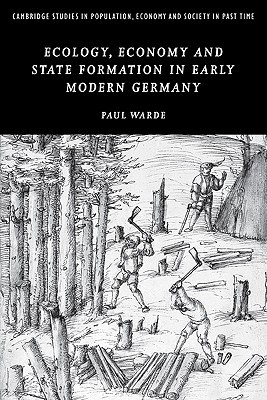
- We will send in 10–14 business days.
- Author: Paul Warde
- Publisher: Cambridge University Press
- ISBN-10: 0521143330
- ISBN-13: 9780521143332
- Format: 15.2 x 22.9 x 2.3 cm, softcover
- Language: English
- SAVE -10% with code: EXTRA
Ecology, Economy and State Formation in Early Modern Germany (e-book) (used book) | bookbook.eu
Reviews
Description
This is an innovative analysis of the agrarian world and growth of government in early modern Germany through the medium of pre-industrial society's most basic material resource, wood. Paul Warde offers a regional study of southwest Germany from the late fifteenth to the early eighteenth century, demonstrating the stability of the economy and social structure through periods of demographic pressure, warfare and epidemic. He casts new light on the nature of 'wood shortages' and societal response to environmental challenge, and shows how institutional responses largely based on preventing local conflict were poor at adapting to optimize the management of resources.
EXTRA 10 % discount with code: EXTRA
The promotion ends in 18d.13:48:32
The discount code is valid when purchasing from 10 €. Discounts do not stack.
- Author: Paul Warde
- Publisher: Cambridge University Press
- ISBN-10: 0521143330
- ISBN-13: 9780521143332
- Format: 15.2 x 22.9 x 2.3 cm, softcover
- Language: English English
This is an innovative analysis of the agrarian world and growth of government in early modern Germany through the medium of pre-industrial society's most basic material resource, wood. Paul Warde offers a regional study of southwest Germany from the late fifteenth to the early eighteenth century, demonstrating the stability of the economy and social structure through periods of demographic pressure, warfare and epidemic. He casts new light on the nature of 'wood shortages' and societal response to environmental challenge, and shows how institutional responses largely based on preventing local conflict were poor at adapting to optimize the management of resources.


Reviews